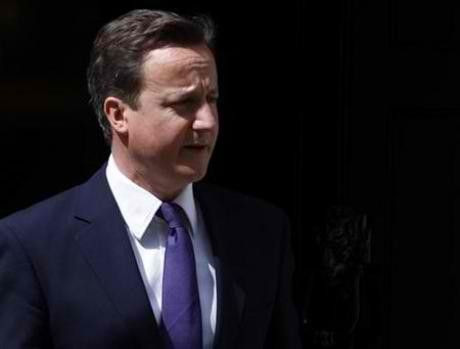UK PM praises Korea’s advanced economy; outlines G20 themes

At the closing plenary session of the G20 business summit in Seoul, South Korea, David Cameron, the British Prime Minister, praised the host country’s miraculous economic advances and also highlighted some major themes underlying the purpose of the G20.
Korea, Cameron gushed, is an example of how “anything is possible.”
He noted that he had just met with some foreign veterans of the Korean War who had not been to the country in almost sixty years. The old soldiers described how Korea at that time was nothing but “shacks and paddy fields,” and now enjoys one of the world’s most successful and advanced economies.
Cameron cited that fifty years ago, Korea had a GDP similar to that of Zambia, a poor country in southern Africa. But since that time, Korea’s economy has expanded thirty-fold -- the result, Cameron claims, of “what happens when you get economic policies, development and politics just right.”
Subsequently, Cameron briefly discussed Great Britain, where his coalition government has imposed draconian budget cuts to reduce a deficit that (at 11 percent of GDP) is one of the highest among the advanced nations.
While the British austerity program has elicited much criticism, Cameron indicated that it is necessary and that he has already started to put in place measures to ultimate grow the UK economy. Specifically, he cited how his administration is seeking to invest in science and how it has reduced the corporate tax to among the lowest rates in the western world.
Cameron said it is important to get on top of high deficit right away in order to make the economy better and stronger in the longer-term. For the moment, the British nation is cutting its spending and living within its means. Cameron urged all countries with similarly high deficits to enact similar measures.
Moving onto the broader issues of the G20, Cameron indicated that nothing that the body decides upon will have any value unless new policies help businesses to grow and employ more people.
Cameron said that G20 must emphasize how important free trade is to the health of the global economy and how protectionism presents a threat to it. He said the world must learn the lessons of the 1930s and discourage such things as currency devaluations.
Cameron also said that he disagrees with those who claim that exports/imports are a “zero sum game” (that is, benefitting one side, while hurting the other). He rejects that notion as “nonsense,” citing that free trade and open competition is “good for everyone.”
However, the Prime Minister then warned nonetheless that the current “trade imbalance” in the world is getting worse and poses a serious risk. He noted that the 2008 financial crisis was basically caused by a global disconnect, i,e., too much saving in the East and too much debt in the West.
Finally, Cameron chided those critics who claim that G20 has “lost its relevance.” On the contrary, he noted, the diverse members of G20 have already reached some fundamental agreements on some difficult and complex issues, including the reform of International Monetary Fund to give emerging markets giants India and China a greater voice in global affairs; and the Basel III regulations on banking reform.
© Copyright IBTimes 2024. All rights reserved.





















